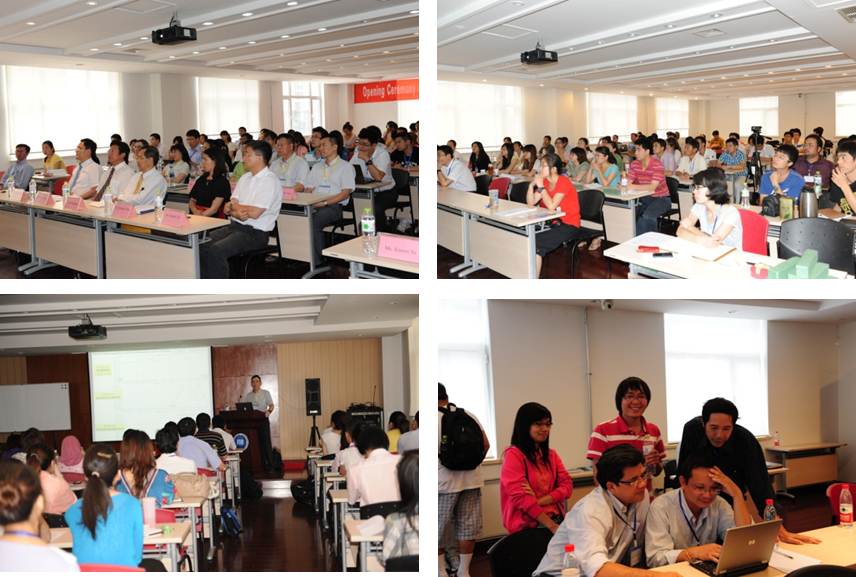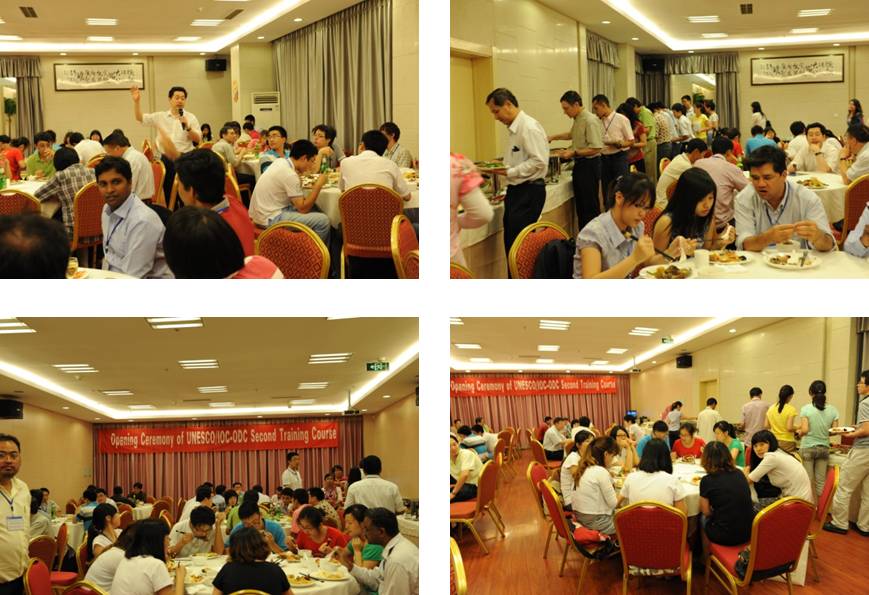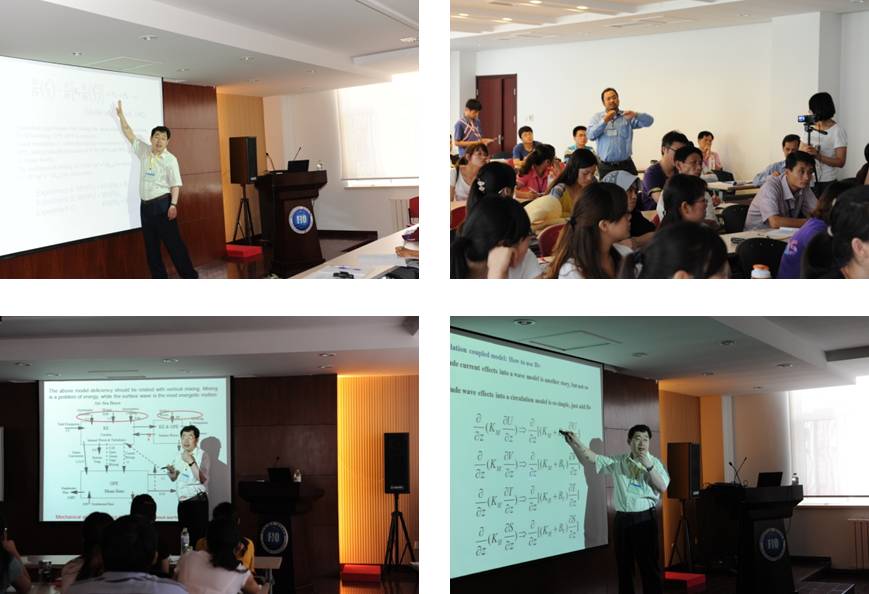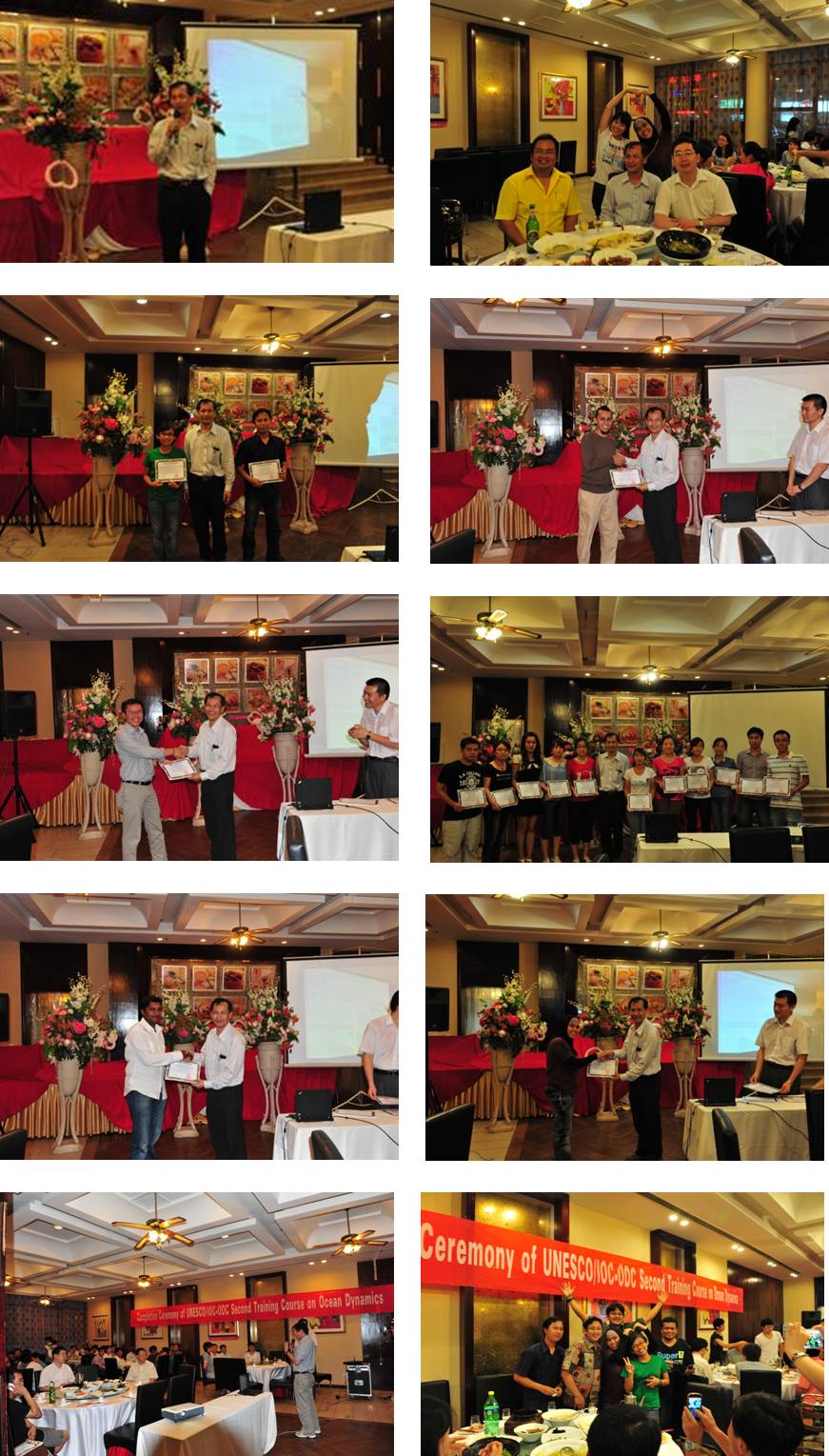During 16-22 July 2012, the second training course of UNESCO/IOC-ODC Center was successfully finished in Qingdao, China. In this training course, 7 lecturers from the US and China provided lectures focused on Ocean Dynamics. Compared with the first training course of this center in 2011, more trainees from more countries were interested in thi training. There were 84 applicants from 16 countries were received for this training course which is much more than last year. And finally, 67 trainees from Russia, Korea, DPR Korea, Japan, Qatar, India, Thailand, Vietnam, Singapore, Malaysia, Indonesia, Mauritius, Peru, Cambodia and China attended this training course, which is held on the 3rd floor meeting room of the Administration Building, First Institute Oceanography. In this training course, the financial supports were provided to 40 trainees, including full support for 19 trainees and accommodations for 21 trainees.

Except for the training course, some other activities were held during this training course including the opening ceremony, visiting First Institute of Oceanography of SOA, China, questionnaire on the training course, and the completion ceremony of this training course.
1. The opening Ceremony On 16 July 2012, the opening ceremony of the second training course of UNESCO/IOC-ODC center was held in First Institute of Oceanography, SOA China. Dr. Zhanhai Zhang, Director General of the International Cooperation Department, SOA, China, and Dr. Somkiat Khokiattiwong, Chairperson of the IOC Sub-Commission for the Western Pacific (WESTPAC) took part in the opening ceremony and gave the welcome speech for this training course. During the whole period of this training course, Dr. Somkiat Khokiattiwong attended all the lectures and provided useful advices. 
In the evening of July 16, the welcome dinner banquet was held in Grand Island Hotel, Qingdao, China. All the lecturers and trainees, Dr. Somkiat Khokiattiwong and Prof. Fredolin Tangang from Malaysia attended this banquet.

2. Training processes
Lecture 1: Small scale dynamics and ocean model introduction 
On 16 July 2012, Professor Tal Ezer from Center of Coastal Physical Oceanography, Old Dominion University, Norfolk, VA, USA
Lecture 2:Wave-circulation interaction and its application

On 17 July 2012, Prof.Fangli Qiao from First Institute of Oceanography, State Ocean Administration, China.
Lecture 3: Large-scale ocean dynamics
 On 18 July 2012, Prof. Huijie Xue from School of Marine Sciences, University of Maine, USA.
Lecture 4: Carbon cycle and marine ecosystem

On 19 July 2012, Prof. Chai Fei from School of Marine Sciences, University of Maine, USA.
Lecture 5: Ocean-atmosphere interaction, ENSO and impacts of climate on extreme events

On 20 July 2012, Prof. Chunzai Wang from NOAA (National Oceanic and Atmospheric Administration) Atlantic Oceanographic and Meteorological Laboratory, USA.
Lecture 6: Introduction of adaptive data analysis methods

On 21 July 2012, Prof. Xianyao Chen from First Institute of Oceanography, SOA, China.
Lecture 7: Mesoscale ocean dynamics based on satellite Data

On 22 July 2012, Prof. Quanan Zheng from University of Maryland, USA.
3. Completion ceremony
In the evening of 22 July 2012, the completion ceremony and farewell dinner of the second training course of UNESCO/IOC-ODC center had been held in Hemingway Hotel, Qingdao. During this ceremony, Prof. Qiao Fangli, the director of UNESCO/IOC-ODC, gave a conclusion of this training course, Dr. Somkiat Khokiattiwong, Chairperson of the IOC Sub-Commission for the Western Pacific (WESTPAC) awarded the certifications to each trainees and expressed his congratulations to this training course for the successful completion. As the last evening of this training course, most of the trainees showed their thanks to this chance of learning from the lecturers and the wishes of attending the following trainings of this center. During the one week of training courses, all the lecturers and trainees have known each other and most of them took photos for memory.
 |
Second UNESCO/IOC-ODC training course on Ocean Dynamics, Qingdao, China
Date: 2012-07-24 13:26 Author: admin Clicks:
